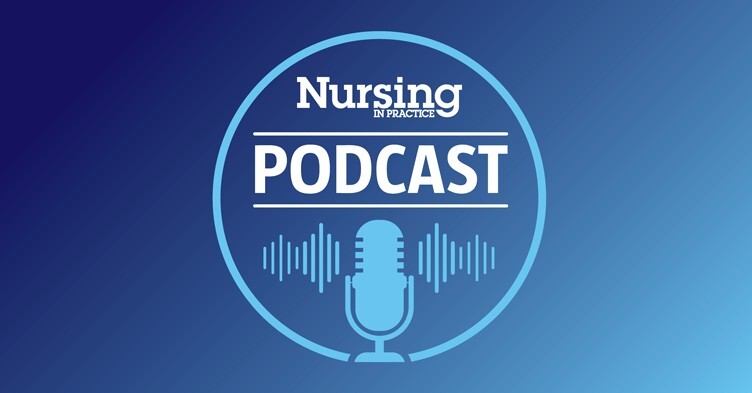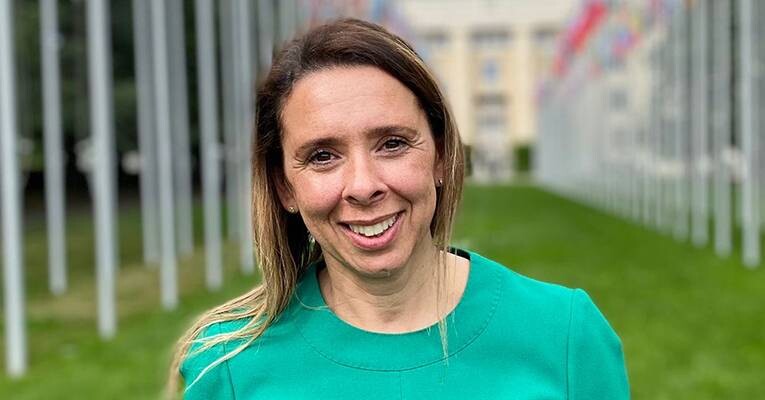Parents need repeat contact and more time with practice nurses on childhood jabs

Parents and carers need repeated contact with the same practice nurse and more time to discuss concerns or questions when it comes to childhood vaccinations, according to a new report.
The report from the Royal College of Paediatrics and Child Health (RCPCH) also warned that the absence of health visitors was damaging vaccination uptake and suggested that expanding their capacity and funding was ‘essential’.
Examining a worrying downtrend in vaccination uptake among children, the RCPCH has uncovered several barriers that need to be addressed to overturn the situation.
It highlights the need to boost the health visitor workforce, improve the continuity of health professionals seen by families, well as the need for better access to appointments and expanded health worker training to tackle vaccine hesitancy.
The college noted that since 2021, not a single routine childhood vaccine in the UK has hit the 95% uptake rate set by the World Health Organization (WHO).
It added that in recent years, measles and whooping cough (pertussis) have also seen a resurgence in the UK ‘due to declining vaccination rates and waning immunity’.
Amid waning vaccination rates, the RCPCH set up a Commission on Immunisation Access, Uptake and Equity and examined national data and insights from healthcare workers, parents and children over a 12-month period.
Related Article: Unite ballot sees NHS staff in England reject pay award
The report is the outcome of the Commission’s findings, which concluded that a ‘fragmented’ system is preventing vaccine uptake and often ‘fails’ families that cannot access vaccination services even when they want to.
When engaged by the Commission, parents described difficulty in booking appointments around work commitments and childcare and inconvenient clinic locations as key reasons preventing vaccine uptake.
Continuity of care vital
They also spoke of a lack of continuity of care, with many parents seeing a different healthcare professional at each visit.
‘Parents and carers cited the need for better, more regular and informative contact with and information from their local care providers,’ the report said.
‘But they also noted – critically – the demand for more contact and information with familiar, known, trusted providers, for example repeat contact with the same GP or practice nurse or health visitor.
‘Parents/carers miss having that same person who they can have time to speak to and ask questions to, and when they cannot speak to that person, it has led to many people doing their own research into vaccinations on the internet.’
Parents and carers also cited a lack of time to ask practice nurses or GPs questions about vaccines, according to the report.
Lack of health visitors
A lack of health visitors is also a major factor reducing vaccine uptake, the report says, with less healthcare professionals available to influence families in making vaccination decisions.
The report added: ‘Health visitors play a vital role in vaccinations through proactively taking on the role of health promotion and signposting.
‘They can build relationships of trust with families and talk through any concerns about vaccinations, as well as being able to deliver vaccinations in specific circumstances where families are struggling to get to vaccination appointments.’
And it called for ‘sufficient funding’ to increase health visitors’ capacity.
Alison Morton, chief executive of the Institute of Health Visiting, said widening health inequalities and a fall in vaccine uptake rates were a ‘national cause for concern’.
Related Article: Nursing in Practice launches new podcast – listen now
She stressed the need to invest in health visitors ‘who remain parents’ first port of call for trusted advice and, with sufficient funding, are ideally placed to deliver vaccinations to vulnerable groups’.
Writing on the Nursing in Practice this week, Ms Morton said the government needed to increase the health visitor workforce and increase training on vaccination programmes to support health visitors to answer parents questions ‘confidently and accurately’.
This comes after it was announced last month that NHS England is set to ‘test’ using health visitors to administer childhood flu vaccinations and other routine immunisations.
More widely, the RCPCH also stressed the need for the NHS to ‘invest in the training and development of all staff so they are confident in promoting the benefits of vaccinations to families and believe in what they are saying’.
Disparity in vaccine uptake
The report also pointed to the rising disparity in vaccine uptake among some ethnic minority groups, socioeconomically disadvantaged families and migrant communities.
These groups often described struggling to access relevant information, due to language difficulties, digital exclusion, challenges in navigating the NHS and a lack of targeted outreach.
The Royal College of Nursing (RCN) head of nursing practice, Carli Whittaker, said declining childhood vaccination rates risks increasing outbreaks of ‘preventable diseases’ including measles and whooping cough.
Ms Whittaker stressed the ‘central’ role nursing staff play in vaccination programmes, including by ‘working to reduce any vaccine hesitancy’.
Related Article: New chief nursing officer for Scotland confirmed
‘Boosting training opportunities to give more nursing staff the skills to play their role in vaccination programmes will help to grow the number of those trained in this important skill and help to address declining rates of vaccination in at-risk groups,’ she added.
Last month, the UK Health Security Agency (UKHSA) warned of a of a potential rise of measles cases during the summer holidays as outbreaks continue across the country.
This followed an earlier warning from the WHO after Europe saw the highest number of measles cases in 25 years in 2024.

See how our symptom tool can help you make better sense of patient presentations
Click here to search a symptom




